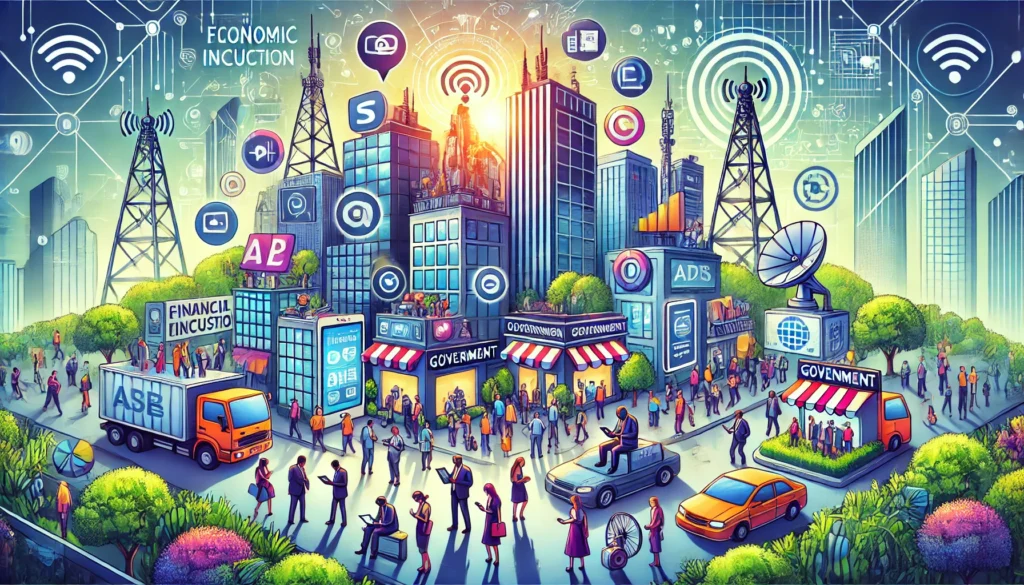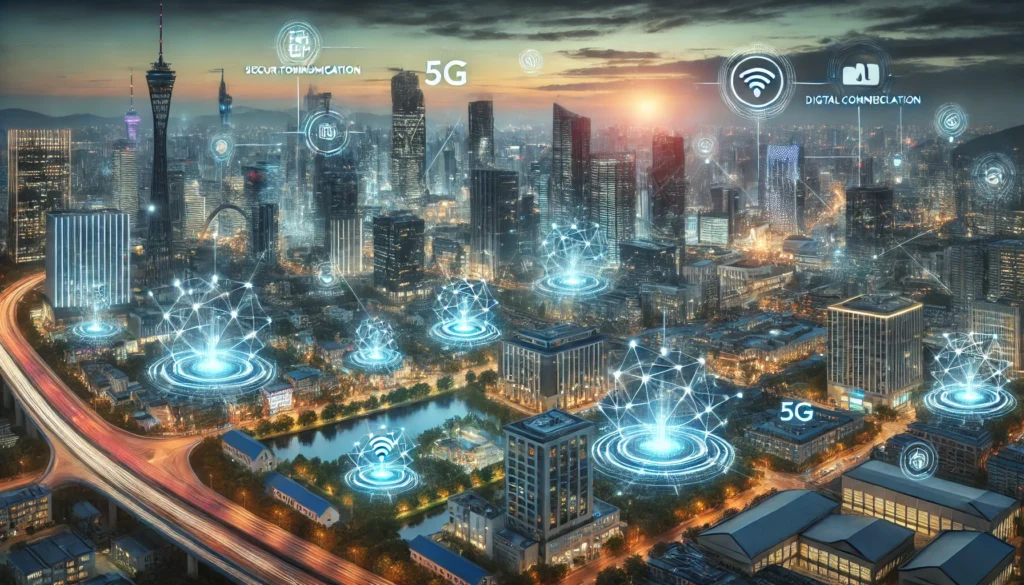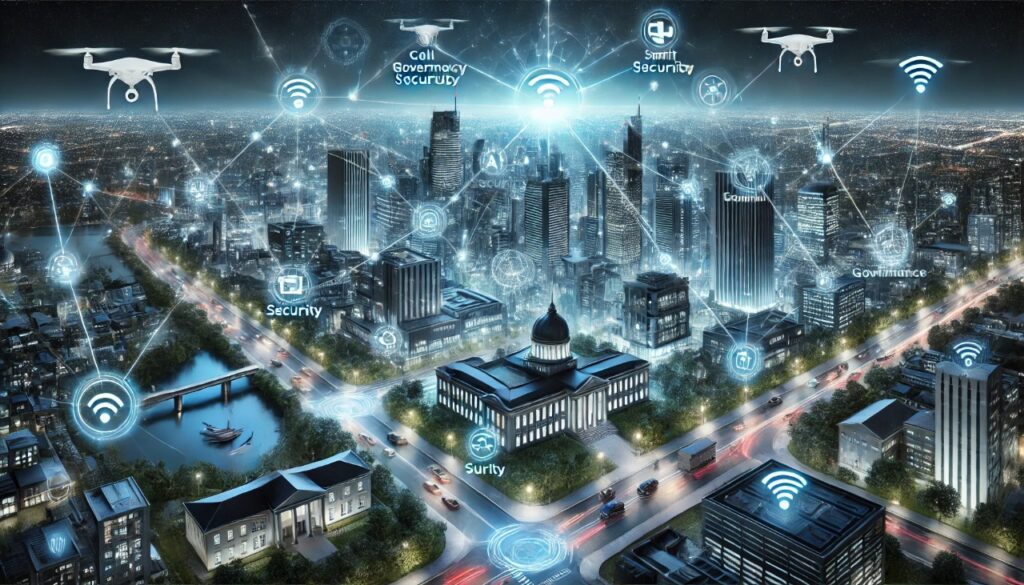Technology is changing the way governments operate. Among the most significant innovations, cell technology is reshaping governance, security, and communication. Governments worldwide rely on mobile networks to provide services, enforce laws, and ensure security. But how does cell technology affect government policies? Let’s explore its far-reaching impact.
The Role of Cell Technology in Government
Cell technology plays a crucial role in modern governance. It enhances communication between officials and citizens, supports law enforcement, and helps policymakers make data-driven decisions. As mobile networks evolve, governments must adapt to new challenges and opportunities.
- Efficient Governance – Governments utilize mobile technology to streamline administrative processes, making services more accessible and reducing delays.
- Improved Citizen Engagement—Governments can keep the public informed and engaged in policymaking through mobile apps and SMS notifications.
- Real-time Data Collection – Mobile technology allows immediate data gathering, helping officials make informed decisions based on public needs.
- Disaster Management and Emergency Response – Authorities use cell networks to coordinate rescue operations and disseminate crucial information during crises.
- Smart City Development – Governments integrate mobile networks with IoT to improve infrastructure, transportation, and public services.

How Does Cell Technology Affect Government Communication?
Effective governance requires efficient communication. Cell technology allows governments to:
- Enhance Public Communication – Authorities can send alerts about emergencies, disasters, or policy changes.
- Improve Administrative Coordination – Officials use mobile networks for interdepartmental communication.
- Increase Transparency – Governments can engage citizens through social media and mobile apps.
Impact on Law Enforcement and Security
Security agencies use cell technology to monitor and prevent crimes. Governments implement policies to regulate its use for security purposes, ensuring public safety while respecting privacy laws.
- Surveillance and Monitoring—Law enforcement agencies track criminal activities through mobile data, including call records, location tracking, and social media monitoring. Advanced analytics help detect patterns and prevent potential threats.
- Emergency Response – Authorities use mobile networks to coordinate disaster management and relief efforts. Emergency alert systems notify citizens about natural disasters, accidents, or terrorist threats in real-time, helping them take necessary precautions.
- Cybersecurity Measures—Governments develop policies to protect mobile users from cyber threats. This includes regulations on data encryption, two-factor authentication, and monitoring suspicious activities on mobile networks. Agencies also collaborate with tech firms to combat cybercrimes such as identity theft, phishing, and hacking.
- Forensic Investigations—Law enforcement agencies use mobile technology in forensic investigations to solve crimes by retrieving deleted messages, call logs, and GPS data.
- Terrorism Prevention: Governments monitor mobile networks to identify and counter potential terrorist threats, using AI-driven tools to analyze conversations and detect suspicious behavior.
Economic Implications of Cell Technology in Governance
Mobile technology boosts economic growth by enabling digital transactions, reducing bureaucracy, and improving service delivery. Governments implement policies that support innovation while regulating the industry.
- Digital Payments – Many governments promote mobile-based transactions to enhance financial inclusion.
- E-Government Services – Citizens can access government services through mobile applications.
- Regulation of Telecom Industries – Governments create policies to ensure fair competition and affordable services.

Cell Technology and Policy-Making
Policymakers use cell technology to analyze trends and gather real-time data for decision-making. This technology influences:
- Data-Driven Governance – Mobile data helps authorities understand public concerns and design better policies.
- Citizen Participation – Mobile platforms enable direct feedback and public engagement.
- Policy Adjustments – Governments modify regulations based on mobile data insights.
Challenges Governments Face with Cell Technology
While cell technology offers numerous benefits, it also presents challenges that require effective policies.
- Privacy Concerns – Governments must balance security and citizens’ rights. Data collection and monitoring by authorities must be regulated to prevent misuse and ensure transparency in governance.
- Cyber Threats – Increasing mobile use requires strong cybersecurity regulations. Governments must implement strict policies to protect against hacking, identity theft, and malware attacks targeting mobile users.
- Digital Divide – Some populations lack access to reliable mobile networks, requiring government intervention. Policymakers must work on expanding network infrastructure, reducing costs, and providing digital literacy programs to bridge the gap between urban and rural communities.
- Misinformation and Fake News – The rapid spread of false information via mobile devices challenges governments. Authorities must create strategies to counter misinformation while ensuring freedom of speech.
- Regulatory Challenges—The fast pace of technological advancement makes it difficult for governments to develop and enforce timely policies. Regulations must be adaptive to accommodate new innovations in mobile technology, such as 5G, AI, and blockchain.
Future of Government Policies in Cell Technology
Governments must continuously update policies to keep up with technological advancements. Future strategies may include:
- Stronger Data Protection Laws – Ensuring user privacy while maintaining national security. Governments must create stricter data collection, storage, and usage regulations to prevent breaches and unauthorized surveillance.
- Enhanced 5G and AI Integration – Developing policies for emerging technologies. As 5G networks expand and AI becomes more sophisticated, governments must establish guidelines to regulate AI-driven decision-making, prevent misinformation, and enhance cybersecurity measures.
- Public-Private Partnerships—Collaborating with telecom industries for improved service delivery. Governments may collaborate with private sector leaders to enhance mobile connectivity in underserved areas, invest in innovative mobile-based public services, and ensure fair competition in the telecom sector.
- Regulatory Framework for IoT and Smart Devices – With the rise of Internet of Things (IoT) devices relying on cell technology, governments must implement policies ensuring the security and reliability of connected devices.
- Digital Inclusion Initiatives – Ensuring equal access to mobile technology by investing in infrastructure, providing digital literacy programs, and offering subsidies for low-income users to bridge the digital divide.
- Cybersecurity and Anti-Fraud Measures – Strengthening laws to combat mobile-based cyber threats, financial fraud, and identity theft. Governments must implement stricter authentication protocols, encourage encryption standards, and work with international agencies to tackle cross-border cybercrimes.
- Mobile Governance Enhancement – Expanding the use of mobile applications for public services, such as e-voting, digital identification, and real-time public consultation platforms. For more information, visit here.

Conclusion
How does cell technology affect government policies? The impact profoundly influences communication, security, economy, and policymaking. Governments must balance innovation and regulation to maximize benefits while addressing challenges. As mobile networks evolve, policy adjustments will be crucial in ensuring sustainable growth and governance.
FAQs
1. How does cell technology affect government decision-making?
Cell technology provides real-time data, enabling governments to make informed decisions and improve public policies.
2. How do governments use cell technology for security?
Governments use mobile networks for surveillance, emergency response, and cybersecurity measures to enhance national security.
3. How does mobile technology influence public services?
It enables e-government services, making administrative processes faster and more accessible to citizens.
4. What are the privacy concerns related to cell technology in governance?
By implementing strict data protection laws, governments must balance national security with citizens’ privacy rights.
5. How will future policies adapt to advancing cell technology?
Future policies will focus on stronger cybersecurity, AI integration, and better public-private partnerships to improve governance.



